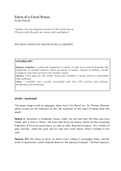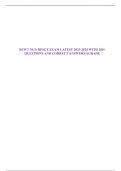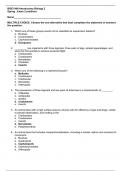Ruins of a Great House
Derek Walcott
“Stones only, the disjecta membra of this Great House,
Whose moth-like girls are mixed with candledust”
(Full poem unable to be reproduced due to copyright)
VOCABULARY
disjecta membra > scattered fragments or limbs, a Latin term used to describe the
fragments of ancient cultures (such as pieces of poetry, shards of pottery, ruined
sculptures etc) that survive in the modern world.
calvary > the open air site where Jesus was crucified / a space which is associated
with suffering.
rakes > wealthy men, usually associated with the 17th century, who behave
decadently and immorally.
STORY / SUMMARY
The poem begins with an epigraph, taken from ‘Urn Burial’ by Sir Thomas Browne,
which muses on the briefness of life, the transition of the state of being alive into
death.
Stanza 1: Describes a Caribbean house, which we can tell from the title was once
‘Great’ and is now in ‘Ruins’. We learn that there are stones, which are the remaining
fragments of the once great house, as well as other disjointed imagery - the ‘mouths of
gate cherubs’, ‘moth-like girls’ and an ‘axle and coach wheel’ which is hidden in the
mud.
Stanzas 2/3: We move to focus on three crows sitting in eucalyptus trees, and the
smell of dead limes, which Walcott likens to ‘the leprosy of empire’. The third stanza is
, brief, and an inaccurate quotation from ‘Night’ by William Blake, a poem with a similar
tone to the epigraph, a pastoral where night descends and the speaker, a shepherd,
bids goodbye to the beautiful landscape around him.
Stanza 4: Turns its attention to outdoor materials and features of the landscape which
have broken or disappeared - ‘Marble like Greece’ and ‘deciduous beauty’, i.e. trees that
bloom in spring/summer but soon die off in autumn/winter. We are told that if we dig
under the dead leaves on the lawn, our spade ‘will ring the bone / Of some dead
animal or human thing / Fallen from evil days’. This is a reference to the country’s
colonial history, Walcott is making the point that a few generations back the
inhabitants of his country - humans and animals alike - were made to suffer under the
‘evil’ rule of colonisers. There seems to be a tension between ‘deciduous’ trees, which
are more native to Europe, and other plants which are native to the Caribbean, i.e.
‘limes’. The river in this stanza seems to represent the flow of time, and the way in
which history is erased through the passage of time, ‘obliterating hurt’.
Stanza 5: Shifts perspective to a single speaker - he tells us that he climbed the wall,
whose ironwork was made by ‘exiled craftsmen’ and it was perhaps intended to
protect the house from ‘guilt’ - we can assume he means that the walls protected the
owners of the house from feeling bad about the way in which they exploited others for
their own gain. The wind shook the trees and he interprets this sound as ‘the death of
a great empire’.
Stanzas 6/7: The speaker moves on through the grounds of the house and sees ‘a
green lawn, broken by low walls of stone’. This reminds him of famous British
explorers, whom he calls ‘Ancestral murderers and poets’. He finds it curious that
though these men are dead, their work lives on still in the world: ‘the rot remains’.
Though Donne died a long time ago, the speaker’s ‘eyes burned from [his] ashen
prose’.
Stanza 8: The penultimate stanza takes a slight shift in tone. It begins angrily, where
the speaker is ‘ablaze with rage’ when thinking of his ancestors and how they were
exploited. However, he checks himself and realises ‘that Albion too / Was once a
colony like ours’. He realises that slavery and exploitation is unfortunately inherent in
human nature, and that horrific phenomena such as war, imperialism, colonisation etc
are cyclical and tend to occur throughout history.
Stanza 9: Though he is still angry, and mourning the suffering of his ancestors, Walcott
ends the poem by being surprised at his own ‘compassion’. The final line and ‘‘part of







